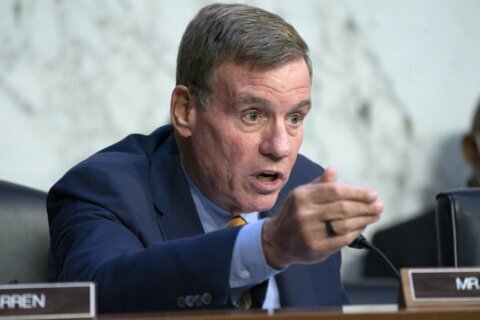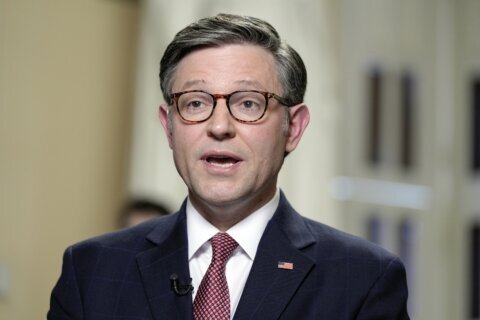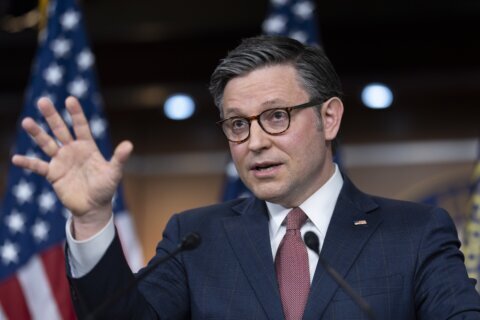The House Select Committee investigating January 6 has been able to uncover much of the multi-faceted plot to subvert the 2020 presidential election. But as it heads into what is likely to be one of its final hearings this week, there are a few investigative threads that remain unanswered.
The committee has presented evidence that former President Donald Trump wanted to go to the Capitol on January 6, eliciting testimony from numerous witnesses describing the former President’s urgent desire to be driven to the Capitol complex by his Secret Service detail following his speech on the Ellipse. It also has established that Trump anticipated staying in office.
Yet the committee has not been able to uncover precisely what Trump planned to do upon arriving at the Capitol, a source familiar with its investigation says, and attributes the gap in knowledge to the limited subpoena power of the committee. It also has been unable to definitively conclude if Trump had a plan. Instead, the committee has developed a number of working theories, the source says.
Understanding Trump’s intentions for going to the Capitol on January 6 would provide insight into his state of mind that day and could expose more potentially criminal activity, as the committee has sought to do throughout its investigation and hearings.
Among the biggest questions hanging over the committee ahead of its hearing on Wednesday is whether it will make a criminal referral to the Justice Department. Multiple members on the committee tell CNN the panel has still not reached a decision.
“I think we will certainly discuss whether we will make referrals” Democratic Rep. Adam Schiff, who serves on the committee, told CNN. “In terms of whether we need to make referrals, not in the legal sense, but I think there is a very important element to Congress, finding evidence of criminal conduct and making sure the department is aware of it.”
Speaking at the Texas Tribune festival over the weekend, Republican Rep. and committee vice-chair Liz Cheney said “I think we will be unanimous” when asked how the panel will approach the process of whether to make a criminal referral.
There is also a growing sense among committee members that the Justice Department will be able to fill in some of the unanswered questions left by the committee’s investigation because of the subpoena power that comes with its ongoing criminal investigation, particularly when it comes to senior officials from Trump’s orbit like his former Chief of Staff Mark Meadows and longtime confidante Roger Stone, who cited various claims of privilege to limit cooperation with the congressional panel.
Schiff told CNN the House committee developed a strategy early on to focus on individuals it knew would cooperate, rather than become tied up in months of legal battles with individuals like House Minority Leader Kevin McCarthy or GOP Rep. Jim Jordan, that could outrun the panel’s existence.
“We made a decision that it was more important for us to get people through the door quickly than to go to court and challenge their assertions of privilege” Schiff said, adding that the panel always reserved the right to make challenges later.
“But it’s getting pretty late in the day, and it would likely take months, if not years to challenge these claims of executive privilege or attorney client privilege or other things. So that’s probably the biggest category of evidence beyond our reach that should be within the Justice Department’s reach.”
Mark Meadows has already complied with a DOJ subpoena by turning over the same materials he provided to the committee before he stopped cooperating. The committee and Meadows reached a standstill in June after DOJ declined to charge Meadows with contempt of Congress because of his compelling case for claiming executive privilege.
“If the DOJ is successful in getting these obstructionist witnesses to testify, my guess is that we will likely not learn of the substance of the testimony until the public does” Schiff told CNN.
“It’s time to wrap up”
Because of the ticking clock, Schiff thinks time has run out to get compliance from the five Republican lawmakers, including House Minority Leader Kevin McCarthy and GOP Rep. Jim Jordan, who have refused to testify.
“I think the reality is that in every large investigation, you reach a point where you know much of what you’re going to know, and it would just take too long to get the next valuable piece of evidence. And it’s time to wrap up.”
But when it comes to Trump and former Vice President Mike Pence, Schiff is not ready to call it quits.
“I think we have to reach out to every witness with relevant information. And in the case of the Vice President, I hope that he will choose to testify voluntarily. But speaking generally, I think the committee should seek the testimony of everyone who has relevant evidence” when asked about Trump and Pence.
And as CNN has reported, this continues to be a topic the panel has not reached a conclusion on.
DOJ making “rolling series of requests” to committee
Members on the committee have in the past criticized DOJ’s investigation into January 6 as moving too slowly, but even now that the criminal investigations have ramped up, the committee is still cautious about how it shares its work product with DOJ.
Schiff characterized DOJ’s requests to the committee as being a “rolling series of requests” with requests regularly getting “refined,” Previously, CNN reported the committee only intended to share 20 transcripts with DOJ.
Members on the committee pushed back on DOJ’s initial request for all of the committee’s transcripts because members have wanted to maintain ownership over their work product and have been worried about handing over sensitive information from the committee’s investigation that could end up in a public court setting.
“We are viewing on a sort of case by case basis” Schiff told CNN. “What is the department asking for? How specific is their ask, what is the risk to our own investigation if we essentially lose control of our own transcripts because they’re provided in court process? And so, we’re looking to find accommodations where we can. We want them to succeed. And over time, we’ll be able to accommodate more and more of the requests.”
Schiff does not believe however that DOJ’s trial into the seditious conspiracy of Oath Keepers leader Steward Rhodes, which is slated to begin the day before the committee’s hearing, has any impact on what the committee presents publicly about Rhodes or other domestic extremist
“I don’t think it’s a factor in what we present publicly” he told CNN. “But, you know, we are mindful of what the department is doing, and any impacts that our work has on the department.”
The-CNN-Wire
™ & © 2022 Cable News Network, Inc., a Warner Bros. Discovery Company. All rights reserved.







